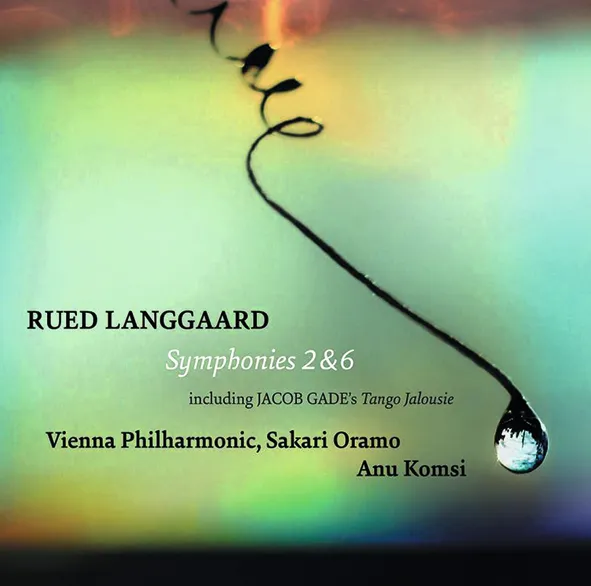
Langgaard Symphonies Nos 2 & 6; Symphony No. 14 – ‘Unnoticed Morning Stars’; J Gade Tango jalousie Anu Komsi (soprano); Vienna Philharmonic/Sakari Oramo (violin) Dacapo 6.220653 (hybrid CD/SACD) 70:40 mins
Rued Langgaard had the unjust misfortune, as he saw it, of having to make his name in his home country, Denmark, when its acknowledged leading composer was Carl Nielsen. Despite some successes in Germany, it appears that his music’s almost non-existent progress in Denmark was not just down to local ‘style wars’. His high-Romantic, would-be transcendent style was indeed at an opposite pole to Nielsen’s post-classical idiom; but the contents of this superbly played recording show that he was also a compulsively prolix, wildly inconsistent composer in ways that, even on his works’ own terms, far too often don’t convince.
Symphony No. 2, Vaarbrud (The Awakening of Spring), opens with nearly 20 minutes of cloned Richard Strauss, fluent yet unmemorable; the finale sets Emil Rittershaus’s poem in a high-flying Straussian line that taxes Anu Komsi’s excellent soprano skills. By far the most striking is the central Lento religioso’s opening strings chorale, offset by musical flights of Ives-like visionary abandon. The Sixth Symphony, Det Himmelrivende (The Heaven-Rending), is a set of variations on two themes, based on the Christ/Antichrist duality that was a Langgaard obsession; while the conception is coherent, the level of invention is not. ‘Unnoticed morning stars’, the 14th Symphony’s slow movement, is another chorale-like, strings-based statement. Jacob Gade’s Tango jalousie, its opening violin solo sparklingly played by Oramo, represents the kind of pleasure-garden material that succeeded where Langgaard himself could not.
Malcolm Hayes